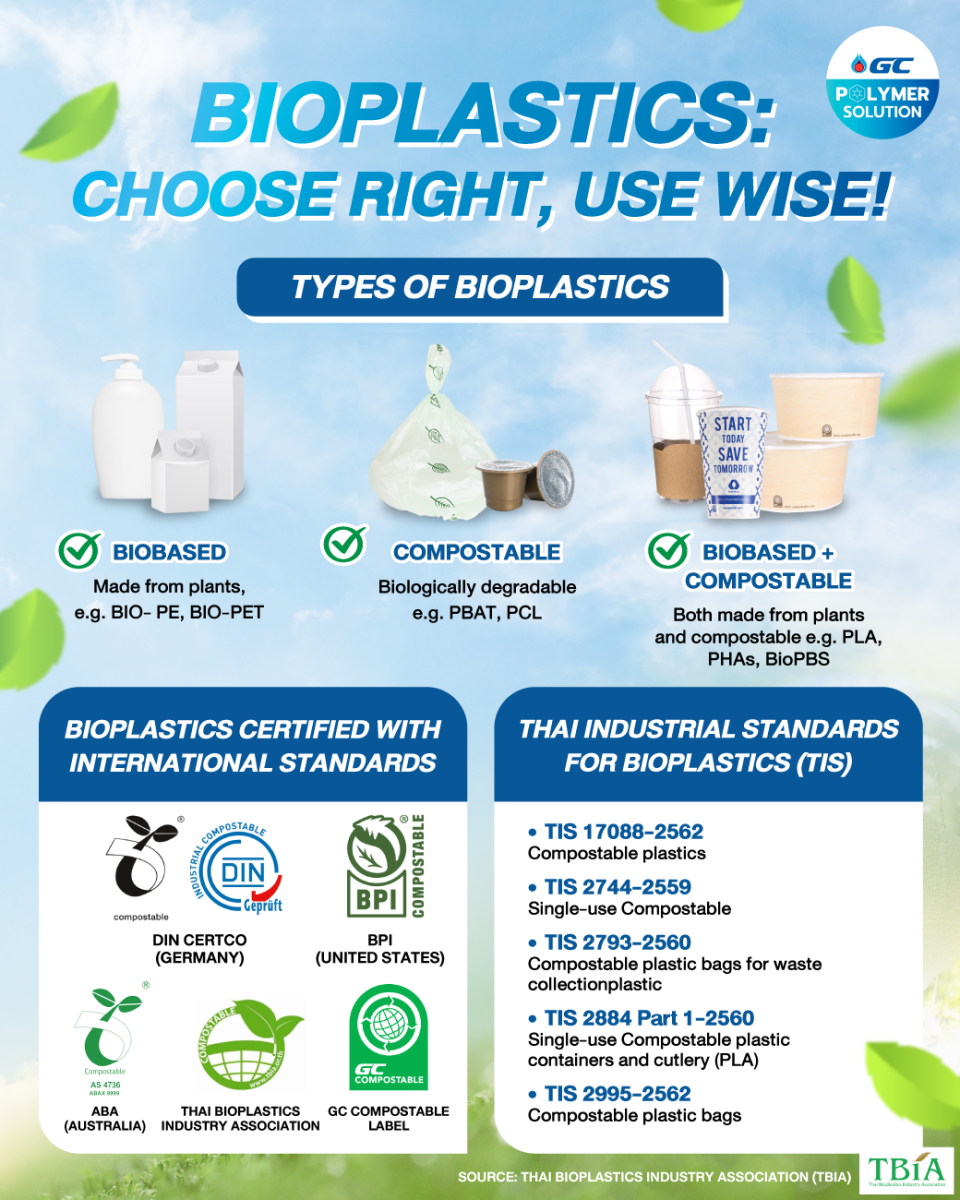BioPlastic Choose Right, Use Wise
15 Jul 2025

Bioplastics: Choose Right, Use Wise!
The plastic waste problem in Thailand remains significant due to inefficient waste segregation, leading to plastic waste being contaminated with other types of waste, making recycling difficult.
Internationally recognized solution is the "Circular Economy" concept, which focuses on efficient resource management. One approach is the use of compostable bioplastics, especially for single-use food contact packaging that is difficult to recycle. Bioplastics are therefore considered one option to help reduce plastic waste.
Today, we would like to summarize the facts about bioplastics from the Thai Bioplastics Industry Association (TBIA)
Bioplastics are divided into three main categories:
Biobased: Made from plants, such as Bio-based PE, Bio-based PP
Biodegradable/Compostable: Biologically degradable, such as PBAT, PCL
Biobased + Biodegradable/Compostable: Both made from plants and compostable, such as PLA, PHAs, BioPBS
These bioplastics are often used in single-use food contact products such as food containers, organic waste bags, and hot and cold coffee cups, which can be disposed by composting with organic waste. Organic waste is an excellent food source for microorganisms that help decompose bioplastics into water, carbon dioxide, and humus.
Although some plastics are labeled as biodegradable, the degradation process depends on factors such as temperature, moisture, and microorganisms. Moreover, conventional plastics, including OXO plastics (conventional plastics with additives that cause them to break down into small pieces), resemble bioplastics, making them difficult to distinguish with the naked eye.
Choosing plastics that have received standard certifications from reliable international organizations such as DIN CERTCO (Germany), BPI (USA), ABA (Australia), and the Thai Bioplastics Industry Association, as well as the GC Compostable Label, which indicates that the product or packaging is made from biodegradable bioplastic (compostable plastics) produced or certified by the GC Group, will help consumers ensure that it is truly compostable plastic and help make waste segregation more efficient from the source. Reducing the problem of "greenwashing" or exaggerating claims about environmentally friendly materials.
Currently, the Thai Industrial Standards Institute has announced the standard for biodegradable plastics, TIS 17088-2562, and four other industrial product standards related to bioplastics:
-
TIS 2744-2559: Single-use Compostable plastic straws
-
TIS 2793-2560: Compostable plastic bags for waste collection
-
TIS 2884 Part 1-2560: Single-use Compostable plastic containers and utensils (PLA)
-
TIS 2995-2562: Compostable plastic bags
Consumers should carefully observe the certification marks or reference standards on the product before use to ensure that it is genuine bioplastic and truly environmentally friendly!
Read more facts: https://bit.ly/4jXAVTM

